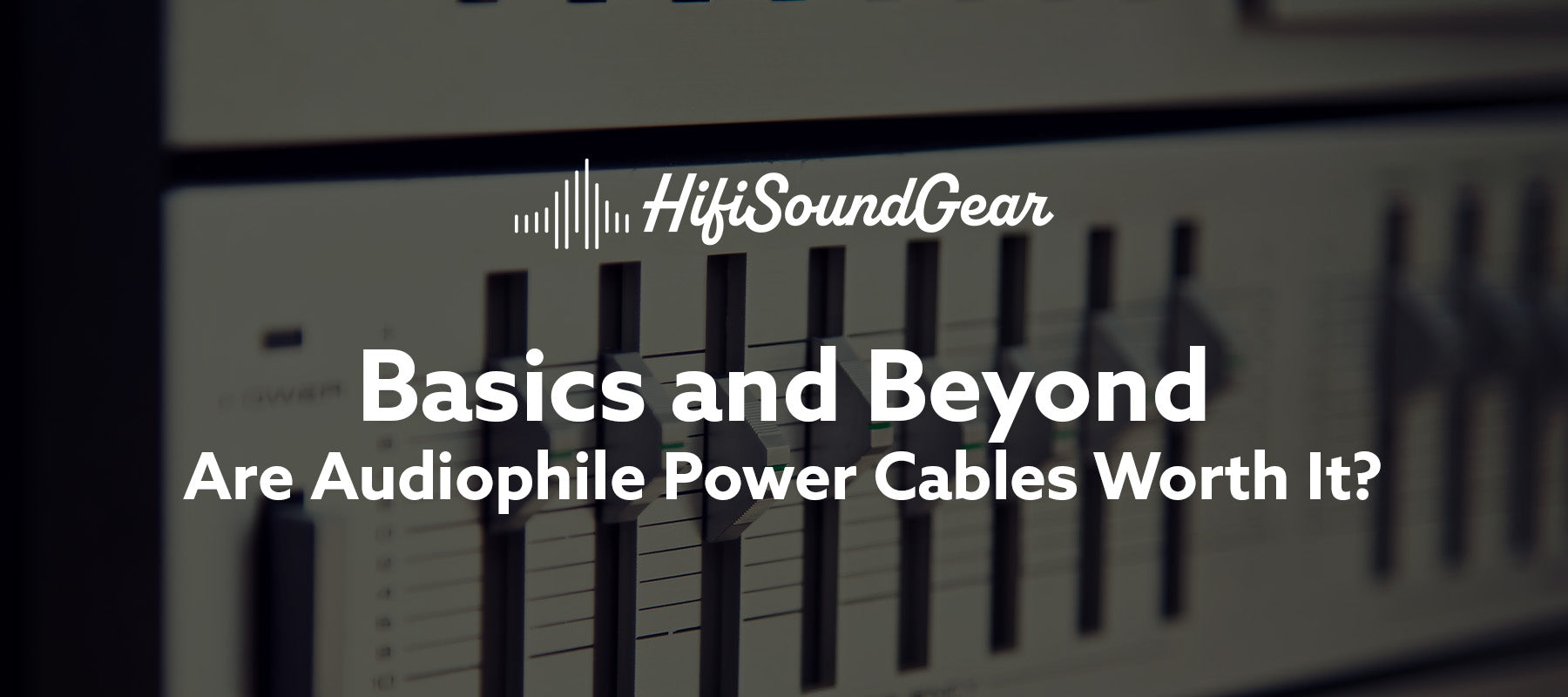
Are Audiophile Power Cables Worth It?
Ever walked into a high-end audio shop and experienced sticker shock at power cable prices that could rival your monthly rent? Trust me, I've been there! When I first saw a $10,000 power cord, I nearly spilled my coffee on a pair of speakers worth more than my car.
Let's untangle this charged debate and see if these premium power cords are truly audio alchemy or just expensive electricity escorts!
The Science Behind Power Cable Design

Think of your audio system's power cable as its nutritional intake – the quality of what goes in fundamentally affects what comes out.
High-end power cables typically feature sophisticated EMI (electromagnetic interference) shielding, which acts like a bouncer at an exclusive club, keeping unwanted noise riff-raff from crashing your listening party. The conductor materials themselves are where things get spicy.
Oxygen-free copper (OFC) has become the de facto standard, with some manufacturers going full Gordon Ramsay and adding silver-plating to taste. The logic? Silver's superior conductivity might serve up a more refined sonic feast.
But here's where it gets interesting: the skin effect (where high-frequency current travels along the conductor's surface) means that fancy silver plating might actually be more than just audio jewelry.
Cross-sectional area plays its part too – thicker cables can deliver more current with less resistance, like upgrading from a garden hose to a fire hose. But remember, your amplifier isn't exactly fighting fires; it's sipping electrons through a sophisticated cocktail straw.
Measurable Effects of Power Cables on Audio Systems

Let's get down to the nuts and volts. When we hook up measurement gear to compare power cables, we do see differences – but they're often smaller than a mosquito's biceps. Voltage stability under load might vary by fractions of a percent, and THD+N (Total Harmonic Distortion plus Noise) measurements can show subtle variations.
The most significant measurable impact often comes from a cable's ability to reject common-mode noise – think of it as your cable's immune system fighting off environmental electrical nasties. Some premium cables show impressive noise floor improvements, but here's the kicker: whether these improvements are audible is where the debate gets spicier than a ghost pepper eating contest.
The Psychology of Audio Perception
Here's where our gray matter throws a monkey wrench into the works. Expectation bias is as real as your mortgage, and it's a powerful force in audio perception. When you've just dropped a month's salary on a power cord, your brain is practically doing backflips trying to justify that purchase.
In double-blind tests (where neither the listener nor the test administrator knows which cable is being used), the results often show that identifying premium cables is about as reliable as predicting the weather with a Magic 8-Ball. But – and this is a big but – some trained listeners consistently report differences, even under controlled conditions.
Real-World Applications and Testing
In my experience testing various cables across different systems, the impact of a premium power cord tends to be most noticeable in these scenarios:
- Systems with very high resolution and low noise floors
- Environments with significant electrical noise
- Power-hungry amplifiers that draw substantial current
However, the law of diminishing returns hits harder than a caffeinated drummer. The jump from a $10 cable to a $100 cable might be noticeable, but the difference between a $1,000 and $10,000 cable? That's where things get philosophically interesting.
Alternative Investments for Better Sound

Before you mortgage your house for that unobtanium-plated power cord, consider these potentially more impactful upgrades:
Power conditioning and isolation can often provide more bang for your buck than premium cables alone. A good power conditioner is like a bouncer, bartender, and cleanup crew all in one for your system's power supply.
Room acoustics improvements remain the holy grail of audio upgrades. The best power cable in the world can't fix standing waves that make your listening room sound like a cave.
Component upgrades often yield more dramatic improvements. A better amplifier or DAC might give you more sonic improvement than a premium power cord – and you might even have enough left over for dinner at that fancy restaurant you've been eyeing.
The Verdict: To Buy or Not to Buy?
After diving deep into the world of audiophile power cables, here's my electrons-to-neutrons take: Are premium power cables worth it? It depends on your system, your ears, and your wallet.
If you've already optimized your room acoustics, invested in quality components, and still have budget to spare, a well-designed power cable might be the cherry on top of your audio sundae. But if you're still using stock speakers or your room sounds like Grand Central Station, your upgrade money probably belongs elsewhere.
Remember, the best audio system is the one that makes you forget about the equipment and lose yourself in the music. Whether that system includes a premium power cable or not? Well, that's a current affair only you can decide!

